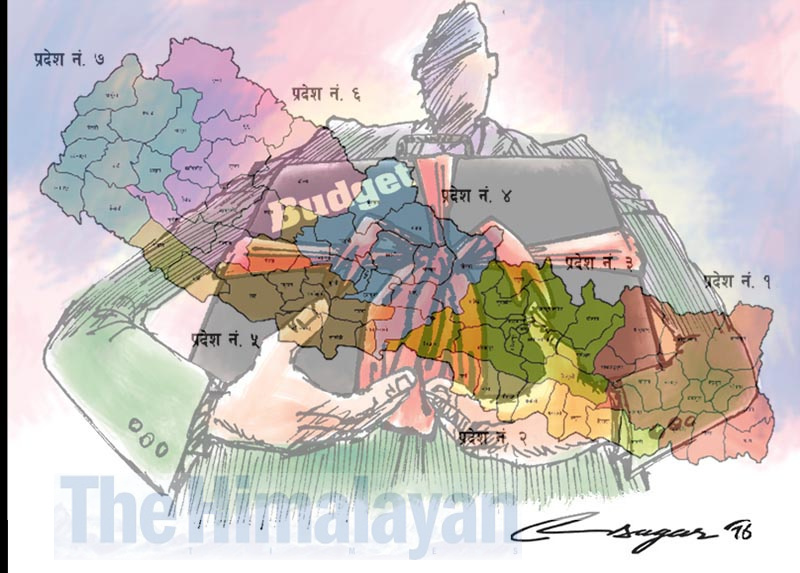Local bodies present fiscal budget for 2019-20
Kathmandu, June 25
Following the federal and provincial budgets, the local bodies presented their budgets in the municipal assemblies today.
As per the provision of the Intergovernmental Fiscal Management Act, local bodies have to present their budgets in their respective assemblies by Asadh 10 of the Nepali calendar — 20 days ahead of the end of the fiscal year. Based on this provision, metropolises, sub-metropolises, municipalities and rural municipalities presented their budgets in the municipal assemblies today.
As per Jaya Narayan Acharya, joint secretary at the Ministry of Federal Affairs and General Administration (MoFAGA), the ministry had forwarded a circular to all the local bodies to present their budget by Asadh 10 in coordination with the Ministry of Finance.
“While we are yet to receive information from all over the country, we believe that all the local bodies presented their budget today.”
He further said that the MoFAGA and Ministry of Finance (MoF) had sent written instructions to all local bodies and said if they were unable to present their budget today, they would face problems in receiving the grant provided by the MoF.
According to Acharya, a few municipalities and rural municipalities presented their budget ahead of the final deadline.
In fiscal year 2018-19, 25 local levels were unable to present their budget. Moreover, 40 local bodies had presented their budget without presenting ‘Programmes and Policies’.
“We are optimistic the same will not be repeated this year as none of the local bodies informed us that they would not be able to present their budget by today.”
Meanwhile, among six metropolitan cities, Kathmandu Metropolitan City has presented a budget of Rs 15.50 billion for the upcoming fiscal year, which is the largest among all the 753 local bodies. Likewise, Pokhara has presented a budget worth Rs 7.54 billion, Lalitpur (Rs 5.17 billion), Biratnagar (Rs 5.12 billion), Birgunj (Rs 4.48 billion) and Bharatpur has presented a budget of Rs 3.37 billion for the next fiscal year. Likewise, Hetauda sub-metropolitan presented a budget of Rs 1.81 billion for fiscal 2019-20.
Local bodies will finance their budgets through their own revenue; grant transferred from the federal and provincial governments; revenue shared from the federal government and provincial governments and through internal debt.
Altogether, 753 local bodies have mobilised revenue shared from the divisible fund worth Rs 65.45 billion for next fiscal 2019-20. Local bodies will directly get 15 per cent of the total value added tax (VAT) and internal excise. Apart from this, they will get 25 per cent royalty collected from mountaineering, electricity, forest, mines and minerals, water resources and other natural resources.
Baikuntha Aryal, secretary at the National Natural Resources and Fiscal Commission, said the commission has not given any suggestion for capacity building of the local bodies. “We are still studying the details of the foundation and format of intergovernmental natural resources distribution.”
The federal government will transfer a total of Rs 89.93 billion as equalisation grant and Rs 123.87 billion as conditional grant to the local bodies.
The provincial governments will also transfer grants to the local bodies.
Grants from the federal government are transferred in four tranches, or every quarter, from the beginning of the fiscal year in mid-July. The federal government has increased grant amount to local bodies by Rs 18.77 billion to Rs 213.82 billion for fiscal year 2019-20.
The federal government transfers 40 per cent of the conditional grant in the beginning of the fiscal year and the remaining amount is transferred based on the performance of the expenses.
Equalisation grant has been allocated based on the need of development in local bodies; multidimensional poverty; socioeconomic discrimination and status of infrastructure development in local units, as per National Natural Resources and Fiscal Commission — the constitutional body that recommends required fiscal transfer to sub-national governments and manages the utilisation of natural resources in an undisputed manner.






